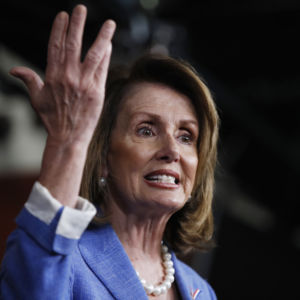Democrats rushed a vote this week to approve the rules of a formal impeachment inquiry of President Donald Trump, but starting this late in the year could interfere with the Democratic primaries in February and hamper efforts to paint the White House blue in 2020.
Previous impeachments of U.S. presidents took two to four months to complete following adoption of articles of impeachment, and with the October 31 vote, that means DC would be in the middle of an impeachment process just as Democrats were heading the polls in early states to pick their party’s nominee. The Iowa caucus will take place on Feb. 3, the New Hampshire primary on Feb. 11, the Nevada caucuses on Feb. 22 and the South Carolina primary on Feb. 29. In other words, prime campaign time for the six U.S. Senators running for president.
“The Trump trial could run through January — 31 priceless campaign days before the Democratic Party’s intensely competitive primaries,” wrote Daniel Henninger in an op-ed for The Wall Street Journal. “Instead of competing for their party’s nomination, Sens. Elizabeth Warren, Bernie Sanders, Amy Klobuchar, Kamala Harris, Cory Booker and Michael Bennet will spend invaluable campaign time planted on Capitol Hill as the trial drones on.”
While Booker, Bennet, Harris and Klobuchar are unlikely to qualify for the Dec. 19 Democratic debate, impeachment proceedings this late in the year could undoubtedly dampen momentum for Warren and Sanders, two of the frontrunners.
Earlier this week, House Speaker Nancy Pelosi (D-Calif.) said the House would vote on beginning a formal impeachment inquiry of the president, but the same day House Majority Leader Steny Hoyer said the Democratic party hadn’t decided whether to vote this week and added he hadn’t read the resolution for the vote. This doesn’t bode well for an efficient, quick-moving impeachment process.
After a formal inquiry and public hearings, the House will adopt articles of impeachment and send them to the Senate, and the Senate will conduct the trial.
James Wallner, a lecturer on government at American University who writes about parliamentary procedure, told InsideSources that how long impeachment will take depends on how long it takes the Senate to get the articles of impeachment from the House.
“If [the process] becomes controversial, it will take longer,” he said. “The more you have to satisfy senators that an adequate process has occurred, the longer it takes.”
Senate Republicans will probably want to get it all over with as quickly as possible, Wallner said. At the same time, it would be politically damaging for Democrats if Republicans can stretch the process as long as possible.
“Most people agree that politically [impeachment is] probably not a great thing for the Democratic Party, so that suggests you’re not going to see Democrats try to drag it out,” Wallner said. “I mean, it may interfere with the primaries.”
In an op-ed for The Washington Examiner, Wallner also said the Senate “shouldn’t cut an impeachment trial short,” even though Trump will likely be acquitted (a guilty verdict requires a two-thirds majority), because it will reflect badly on Republicans.
“Even in a world where the rules have lost all meaning, Republicans should nevertheless refrain from moving to dismiss an impeachment trial before a verdict can be rendered,” he said. “If … Republicans move to dismiss the trial immediately after it has begun, they will have denied senators the opportunity to acquit the president. The result will be a lingering cloud of suspicion that will hang over the president and Senate Republicans.”
For Republicans, then, it makes sense to drag out the trial to ensure at least an appearance of thoroughness which then lends credibility to their subsequent acquittal of the president. Plus, it would also hamstring Democrats going into 2020.
By starting impeachment proceedings so late in the year (the House’s progressive wing called for impeachment in April after the public release of the Mueller report), Pelosi may have just screwed her own party.

